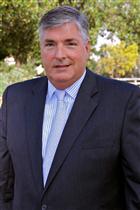
Greetings—
Two engagement sessions this past week focused on our recent high impact grantmaking, helping nonprofits, school districts and intermediaries explore what builds success by the third grade.
Our two panels – one here in Fresno and the other in Visalia, brought together donors, grantees and community leaders to share lessons from investing in this area of fast changing opportunities.
Thinking about the whole community can be a paradigm shift
A school superintendent shared that one of the paradigm shifts in his thinking requires the need to think beyond the needs of the school district to focus on the needs of the larger community. As we digest new research and new observations about how children learn and develop, from the earliest ages, the importance of the first years on brain development are being understood more broadly.
All that happens before anyone shows up at school.
Seeing the dots connect between the stages of child development, starting in the womb, should help direct priorities as our children develop. Each stage has its critical importance in building skills and talents; each feeds the next. One of our panelists suggested we think of the highest impact, where the brain development is most rapid: 0-18 months.
One of our community’s challenges is to understand more clearly these connections. Institutions are wrestling how best to help families and parents get their children ready, both formally and informally. Important work by the First 5 B-3 initiative has helped districts here in Fresno understand how making these connections more effective can help children be ready to start kindergarten, first grade and the stages afterwards.
Three years of high impact grants help us learn what is working
Our three years of high impact grants have been focused on efforts to help families prepare their children for success by the 3rd grade, which emerged from a months long process to identify effective pathways out of poverty. Successfully navigating that all important transition from learning to read to reading to learn, a component of ‘grade level reading’, is an outcome we seek.
We are of course pleased to hear of successful results from our grants, from grantees who are engaging parents in getting their children ready, strengthening literacy at the parent and the child level, helping bridge cultural gaps, and reaching out to sustain families as they gain the skills and tools to connect to the organizations and schools looking after and teaching their children.
We are in the midst of our 2015 grants - to be distributed in November, the final of this cycle of grants made possible by a partnership with The James Irvine Foundation, whose critical investment is in projects of high impact that emerge from community needs here in the San Joaquin Valley. We remain grateful for this significant investment.
Change at a faster tempo
America has been wrestling with its education system for generations. The Nation at Risk report was issued in 1988, raising concerns about the efficacy of our school preparation in light of our economy’s needs and global changes. It seems as if every decade, new efforts are directed at ‘strengthening the schools’, from both the federal and state level; local schools – officials and teachers together - adjust and absorb, all the while moving forward with their critical work preparing the next generation for success.
But the world continues to change as well, often at accelerating speeds.
Local authority responding to global tempos
American education has long been a local issue, which has served the nation well over the past two hundred years. Major reforms in the early years of the last century helped the nation transform from its agrarian roots to a more industrial global economy, and the new high school provided graduates with tools and skills. The GI Bill moved a new postwar generation to college, and a vast increase in students stepped up their game, rebuilding the economy after World War II.
The 21st century economy has its own needs. We are adapting to the new norms and connections of technology, globalized and diverse populations and a faster clip of change. That puts local school board, teachers and administrators on a shorter turnaround time, as each district tries to balance its community, resources and expectations. Progress can seem uncertain or uneven.
One of our panelists suggested we need to move beyond acknowledging it takes a village to raise a child; we need a new village. I think the new village is being created around us, with change emerging faster than the institutions who are charged with the responsibilities for educating our children. We need help, so we can help them succeed.
As we respect the needs to get ready for a new generation, we are mindful that human pace for change sometimes runs on a different tempo. Connecting the two keeps everyone focused on the objective, developing the means to do right by our kids. It takes a community to help each other through these tectonic changes, remembering the long view, and setting the stage for that more prosperous future.
Come join us in this good work, as we learn how we can be more effective in making these investments in helping the next generation succeed – not only at the third grade but beyond.

Comments